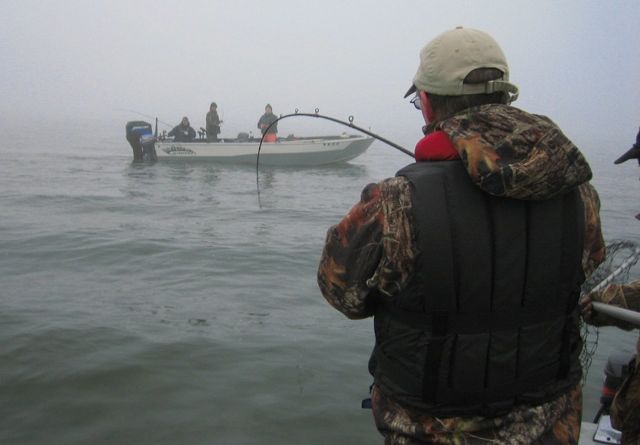forum
library
tutorial
contact

Panel Warns Severe Ecological Consequences in Waters
Off NW Coast Due To Changes In Ocean Chemistry
by Staff
Columbia Basin Bulletin, April 8, 2016
|
the film forum library tutorial contact |

|
Panel Warns Severe Ecological Consequences in Waters
by Staff
|
 Global carbon dioxide emissions are triggering permanent and alarming changes to ocean chemistry along the North American West Coast that require immediate, decisive action to combat, including development of a coordinated regional management strategy, a panel of scientific experts has unanimously concluded.
Global carbon dioxide emissions are triggering permanent and alarming changes to ocean chemistry along the North American West Coast that require immediate, decisive action to combat, including development of a coordinated regional management strategy, a panel of scientific experts has unanimously concluded.
A failure to adequately respond to this fundamental change in seawater chemistry, known as ocean acidification, is anticipated to have devastating ecological consequences for the West Coast in the decades to come, the 20-member West Coast Ocean Acidification and Hypoxia Science Panel warned in a comprehensive report unveiled Monday, April 4.
"Increases in atmospheric carbon dioxide emissions from human activities are not just responsible for global climate change; these emissions also are being absorbed by the world's oceans," said Dr. Alexandria Boehm, co-chair of the Panel and a Professor of Civil and Environmental Engineering at Stanford University. "Our work is a catalyst for management actions that can address the impacts of ocean acidification we're seeing today and to get ahead of what's predicted as ocean chemistry continues to change."
Because of the way the Pacific Ocean circulates, the North American West Coast is exposed to disproportionately high volumes of seawater at elevated acidity levels. Already, West Coast marine shelled organisms are having difficulty forming their protective outer shells, and the West Coast shellfish industry is seeing high mortality rates during early life stages when shell formation is critical. The acidity of the world's oceans is anticipated to continue to accelerate in lockstep with rising atmospheric carbon dioxide emissions.
The Panel was convened in 2013 to explore how West Coast government agencies could work together with scientists to combat the effects of ocean acidification and a related phenomenon known as hypoxia, or low dissolved oxygen levels.
The Panel's final report, titled "Major Findings, Recommendations and Actions," summarizes the state of the science around this pressing environmental issue and outlines a series of potential management actions that the governments of the states of California, Oregon, and Washington, and the province of British Columbia, can immediately begin implementing to offset and mitigate the economic and ecological impacts of ocean acidification.
The Panel is urging ocean management and natural resource agencies to develop highly coordinated, comprehensive multi-agency solutions, including:
"One of the most exciting aspects of the Panel's work is that it scales a challenging, global problem down to a local and regional level, providing a roadmap to guide measurable and meaningful progress immediately," said Deborah Halberstadt, Executive Director of the California Ocean Protection Council, a government agency that served as the impetus for the Panel's formation.
West Coast policymakers will use the Panel's recommendations to continue to advance management actions aimed at combatting ocean acidification and hypoxia. This work will be coordinated through the Pacific Coast Collaborative, a coalition of policy leads from the offices of the governors of California, Oregon, Washington, and the premier of British Columbia, which have been working together on West Coast ocean acidification since 2013. The Pacific Coast Collaborative has been engaging state and federal agencies across multiple jurisdictions to elevate the need for action along the West Coast.
The Panel, which was convened for a three-year period that ended in February 2016, also has recommended the formation of a West Coast Science Task Force to continue to advance the scientific foundation for comprehensive, managerially relevant solutions to West Coast ocean acidification.
"Communities around the country are increasingly vulnerable to ocean acidification and long-term environmental changes," said Dr. Richard Spinrad, Chief Scientist for the National Oceanic and Atmospheric Administration. "It is crucial that we comprehend how ocean chemistry is changing in different places, so we applaud the steps the West Coast Ocean Acidification and Hypoxia Science Panel has put forward in understanding and addressing this issue. We continue to look to the West Coast as a leader on understanding ocean acidification."
learn more on topics covered in the film
see the video
read the script
learn the songs
discussion forum
